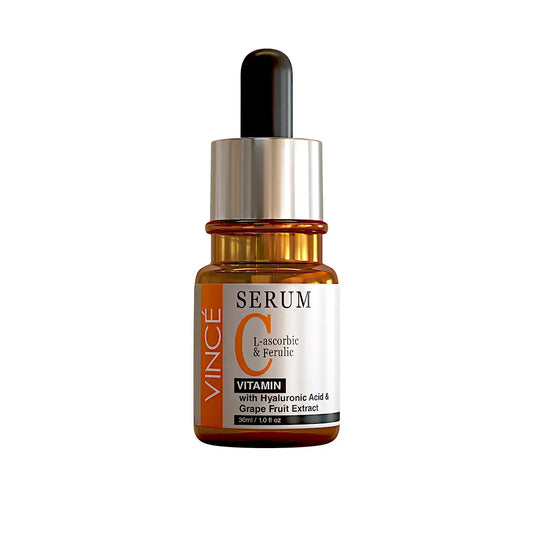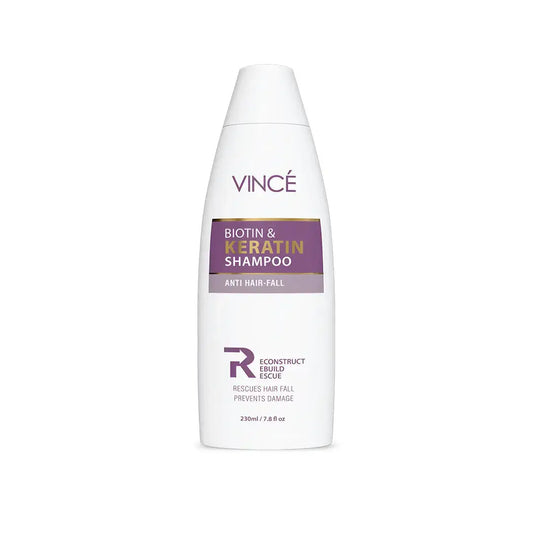Premature Aging Symptoms and Causes - Everything you need to know

Old age is inevitable. All people want to look young and feel healthy forever, but the reality is that your body and your appearance change with time. These changes occur faster in some people, which is called premature aging.
Premature aging can result from usual lifestyle factors and behaviors, which can be corrected or changed. We will explain how premature aging can affect you and discuss some simple tips to avoid it.
What Is Premature Aging?
According to a molecular point of view, the human body is filled with telomeres or parts of the DNA protein structure at the end of the chromosome. Telomeres help preserve genetic information that makes you look younger and brighter. When each cell divides, some telomeres are lost, although the enzyme telomere helps to replenish it. Over time, telomeres naturally shrink with age and damage your DNA and eventually die.
This process is known as internal aging. It is unique to each individual because it is ultimately connected to your genetics.

However, certain environmental and behavioral factors can accelerate the shortening of the telomere, which increases the risk of damage to your DNA. It is called external aging.
As a result, premature aging may occur much earlier than expected. In other words, the biological clock is more advanced than your historic clock. Controlling factors such as stress, smoking, and sun exposure can all play a role in accelerating external aging.
What are Aging Effects on Skin ?
Changes in your skin are one of the most important aspects of aging. You could easily get hurt, experience dry skin more often, or see wrinkles on previously smooth areas. These changes, which external factors can accelerate, are caused by various changes.
There are three main layers of skin in the human body: the outer epidermis, the middle skin, and the inner layer of oil. The epidermis is a thin layer of oil that colors your skin. The lining of the thick dermis contains hair follicles, oil glands, and blood vessels. Internally, the fat layer acts as a protective barrier to your organs.

The epidermis gradually becomes thinner as you get older, decreasing the oil level. As a result, the skin becomes yellow and light. You can also see sunburn from UV exposure, called lentigos.
The dermis contains collagen and elastin connective tissue, giving your skin strength and elasticity. Lack of elasticity, known as elastosis, loses the skin as you age.
The dermis is a blood vessel that becomes weaker with age. Soft walls of blood vessels are at greater risk of injury and bleeding. In addition, the sweat glands in the dermis lose their function. It makes it difficult for the skin to produce sweat to cool you down.
The sebaceous glands also called oil, keep the skin moist and hydrated. Over time, the production of oil glands decreases, and you have a higher risk of dry, itchy skin.
In the bottom layer, the subcutaneous slowly thins out as you age, resulting in less protection from temperature and shock. It explains why many older people experience constant cold and skin injuries.
What Are The Symptoms Of Premature Aging?
The aging process is different, but some signs of aging are considered premature if you notice them before 35.
1. Sun Spots
Sunspots are also known as age spots and liver spots. These are flat spots on your skin that have been caused by sunlight for many years.
These hyper-pigmented spots can form on your face, the back of your hands, or your arms.
for protecting yourself from UVA & UVB rays you must use Sunblock with SPF 40 and SPF 75. Sunblock cover your skin pores from sun rays.

They tend to appear at age 40 or later. People with fair skin may notice these changes in sunburn first.
2. Gaunt Hands
With time the top layers of your skin become thinner. It contains minor structural proteins, such as collagen, that shape your skin. As a result, your hands become more delicate and wrinkled.
There is no objective metric for when hands start to look old, but most people look at it in their late 30s and early 40s.
3. Inflammation or Hyperpigmentation along with Chest
Many people develop a pale complexion as they age. Like sunspots, these areas of different oils can cause damage to your cells from sun exposure.
This type of hyperpigmentation is not always associated with old age. It can be the result of eczema or other skin conditions that damage the melanin cells in your skin. The shape of this skin is usually not the average age of appearance.
4. Dry or Itchy Skin
Dry or itchy skin can occur more often over time. It is because thin skin is more prone to dehydration. You can see that your skin is getting drier, and you are more at risk of flare-ups as you get closer to the age of 40.
5. Wrinkles
As you enter your 30s, your skin loses its collagen production, the protein that shapes your skin. Collagen is what helps your skin to bounce back and stay plump.
A lack of collagen in the skin makes it easier to get visible wrinkles. You may find that it occurs in areas around the most commonly used muscles, such as the forehead, or where you are exposed to the sun.
The age at which people first notice wrinkles vary; there is a slight criterion for it to be premature. And sometimes old age is not responsible. It could be just dirt or lack of water.
6. Hair fall
Hair loss occurs when the stem cells that grow new hair in your hair die. Hormonal changes, environmental factors, genetics, and your diet all play a role in how fast this happens.
Up to 40% of women over 70 years of age experience trusted hair loss. Men experience it first, with hair loss after the age of 50.
What Causes Premature Aging?
Many different factors directly affect how quickly these symptoms appear in your body.
1. Smoking
Oxidative stress on your skin is because by Cigarette smoke. It causes dryness, wrinkles, and other signs of premature aging.
2. Sun Exposure and Tanning
Tanning beds and sun exposure penetrate your skin with UV rays. These rays damage the DNA in your skin cells, causing wrinkles.
3. Genes
Some rare genetic conditions can cause you to show signs of aging in childhood and early puberty. These conditions are called Progeria.
How to Avoid Premature Aging
Your skin becomes less elastic, dry, prone to injury, and loses insulation as you age. Unfortunately, there is not much you can do to slow down the process entirely. All you can do is avoid behaviors and environmental factors that can cause you to age premature aging.
1. Sun Exposure
When you perform outdoor activities, always remember to wear sunscreen. A long-sleeved shirt and hat can also protect when in a pool, beach, or lake.
If you plan to use UV light through tanning, either from the sun or a tanning bed, use self-tanner lotion or spray instead.
2. Stress
Look, stress is one of the reasons for premature aging. Chronic stress can limit your body's supply, which alters the ability to replenish lost telomeres involved in cell division. More specifically, cortisol is a hormone that allows your immune system to deal with stress and suppresses telomere activation in immune system cells. It can lead to premature aging, wrinkles, dry skin, and other changes.
3. Smoking
Smoking is primarily seen as a health risk to your lungs, heart, and brain, but it can also accelerate premature aging. Just as smoking can affect blood flow to your heart or brain, it can also damage the blood vessels for delivering oxygen to the skin. Your skin is more prone to wrinkles without enough oxygen. Smoke can also damage the hair follicles, causing thinning hair.
4. Unhealthy Eating Habits
Eat a balanced diet like fruits, vegetables, and lean protein to help prevent premature aging.
Eating fast food and desserts can significantly affect your skin—people who have a high body mass index experience more oxidative stress than healthy adults.
There are even anti-stress foods that can help you. Stay away from good carbohydrates and saturated fats that can lead to weight gain. It is also helpful to include activity in your routine. Exercise can help improve circulation, which is good for the skin.
Ways to Reduce Premature Skin Aging
The sun also causes premature aging of our skin. Other things that we do can make our skin naturally age faster than that. To prevent premature skin aging, dermatologists offer the following tips to their patients.
1. Protect Your Skin from the Sun
Sun protection is essential, whether spending a day at the beach or getting to work. You can protect your skin with shade, protecting yourself from the sun with protective clothing and sunscreen.

There are many products to avoid premature aging. Perfect 30's Cream is very beneficial and practical for premature aging.
2. Stop Smoking
Smoking accelerates skin aging. It causes wrinkles and a dull, light complexion.
3. Avoid Repetitive Facial Expressions
When you make facial expressions, you contract the core muscles. These lines become permanent if you repeatedly squeeze the same muscles for many years. Wearing sunglasses can help reduce the appearance of lines.
4. Eat a Healthy, Well-Balanced Diet
Some studies have shown that eating plenty of fresh fruits and vegetables can help prevent premature skin damage. The results of research studies also show that a diet high in sugar or other refined carbohydrates can accelerate aging.
5. Drink Less Alcohol
Alcohol dehydrates and damages the skin. It can make us look old.
6. Exercise Most Days of the Week
Some studies have shown that moderate exercise can improve circulation and boost the immune system. In turn, it can make the skin look more youthful.
7. Gently Cleanse Your Skin
Cleansing your skin will remove impurities from your skin pores and make it clean. The itching of your skin accelerates the aging of the skin. Gentle washing helps to remove impurities, make-up, and other substances without irritating your skin.
8. Wash Your Face Twice a Day
Wearing a helmet or hat irritates the skin due to Sweating, so you should wash your skin as soon as possible after sweating.
9. Apply Facial Moisturizer Every Day

The moisturizer traps water in our skin, making it look younger. Stop using skin care products that sting or burn skin. When your skin stings or burns, it means your skin is glowing. Itching your skin can make it age.
Conclusion
Even people with premature aging of the skin can benefit from lifestyle changes. Protecting your skin from the sun gives you a chance to heal some of the damage.
If signs of skin aging bother you, you may want to see a dermatologist. New treatments and more minor invasive procedures to smooth out wrinkles, tighten the skin, and improve one's complexion provide many people with younger-looking skin.




